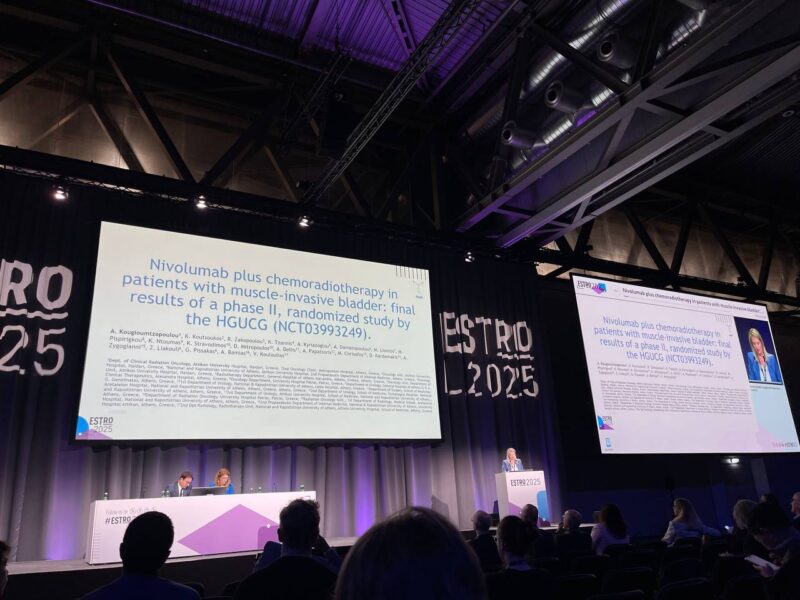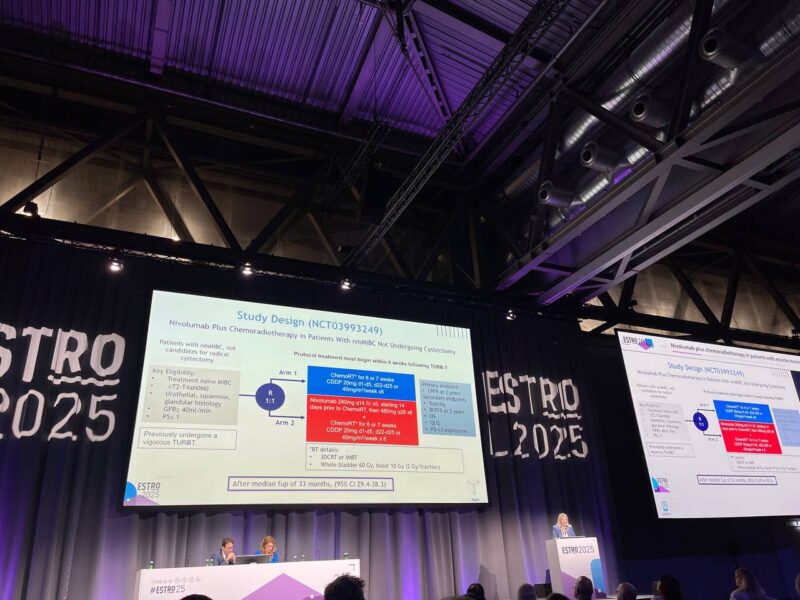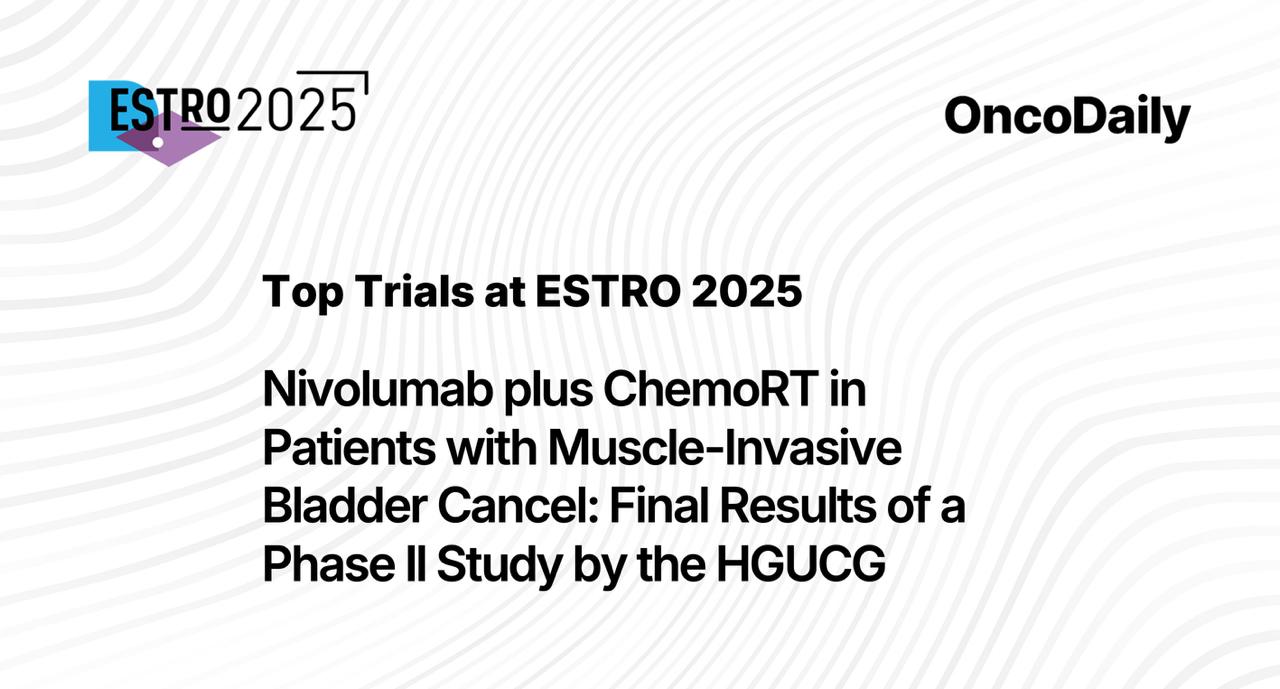Bladder preservation therapy, consisting of maximal transurethral resection (TURBT) followed by chemoradiotherapy (CRT), has emerged as a viable alternative to radical cystectomy (RC) for select patients with nonmetastatic muscle-invasive bladder cancer (MIBC). While CRT alone has demonstrated efficacy, long-term survival outcomes remain suboptimal for some patients. Given the success of immune checkpoint inhibitors like Nivolumab in advanced urothelial carcinoma, researchers hypothesized that incorporating immunotherapy into trimodality bladder-sparing treatment might improve outcomes without compromising safety.
Methods
This randomized phase II trial evaluated the efficacy and safety of adding Nivolumab to standard CRT in patients with MIBC who were candidates for bladder preservation.
Treatment Arms
- Arm A (CRT only): Cisplatin-based chemotherapy concurrent with radiotherapy
- Arm B (CRT + Nivolumab): Nivolumab administered 2 weeks before CRT, continued concurrently, and extended post-treatment for 6 months (total of 6 cycles at 480 mg every 4 weeks)
Radiotherapy
- 60 Gy to the entire bladder
- Additional 10 Gy boost to the tumor site
Conventional fractionation used in both arms
Primary Endpoint
- Locoregional failure-free rate (LRFR) at 2 years
Secondary Endpoints
- Bladder cancer failure-free survival (BCFFS)
- Overall survival (OS)
- Safety and toxicity profile
Study Design
A total of 77 patients were enrolled and randomized:
- 39 patients to CRT alone (Arm A)
- 38 patients to CRT plus Nivolumab (Arm B)
Patient compliance was higher in Arm A (90%) compared to Arm B (66%). The analysis was conducted when 69 patients had completed at least 2 years of follow-up.
Results
These results position immune checkpoint inhibition as a promising addition to the evolving standard of care in organ-preserving treatment of muscle-invasive bladder cancer.
Relapses
- Total Relapses were higher in Arm 1 (56.4%) compared to Arm 2 (34.2%).
- Locoregional Relapses occurred at similar rates: 28.2% in Arm 1 vs. 31.6% in Arm 2.
- Distant Relapses were significantly more common in Arm 1 (28.2%) than in Arm 2 (2.6%).
- Deaths were more frequent in Arm 1 (46.2%) compared to Arm 2 (21.1%).
Failure-Free survival: 19,9 in Arm 1 vs 43.4% in Arm 2
OS: 60,5% in Arm 1 vs. 86.8% in Arm 2
Adverse Events (AEs)
- More patients in Arm 1 had no AEs compared to Arm 2 (43.6% vs. 18.4%, p = .017).
- Severe AEs (Grade >3): Similar rates between arms (25.6% vs. 36.8%, p = .29).
- Deaths During Treatment: Three patients died (1 from COVID-19, 2 from disease progression); none were treatment-related.
Kay Takeaways
- The addition of Nivolumab to chemoradiotherapy significantly improved BCFFS and OS in patients with high-risk MIBC.
- Although locoregional failure rates improved with Nivolumab, the difference did not reach statistical significance.
- The combination therapy led to higher rates of adverse events, particularly gastrointestinal issues like diarrhea and immune-related toxicity.


About ESTRO 2025
ESTRO 2025 brings together around 7,000 participants from over 80 countries, showcasing the latest research in clinical radiation oncology, radiobiology, medical physics, technology, and brachytherapy. Leading doctors and scientists from around the world present groundbreaking findings, in line with the conference theme: “Transformative innovation through collaboration”. ESTRO 2025 is the annual congress of the European Society for Radiotherapy and Oncology (ESTRO), an organisation dedicated to advancing cancer treatment through radiotherapy and multimodal approaches. ESTRO promotes education, science, and research and advocates for universal access to radiotherapy. With nearly 10,000 members worldwide, it supports radiation oncology professionals and the broader oncology community in their daily practice.
Read ESTRO 2025 Updates on OncoDaily.



